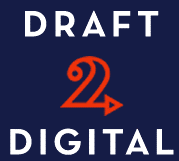4 Ways to Publish Your Book
- H.A. Worthington
- Jan 8, 2020
- 2 min read
Updated: Oct 20, 2020
Traditional publishing is no longer the only way to get your book out to the masses. In addition to self-publishing, made popular by KDP publishing and other resources, there also is vanity and hybrid publishing to consider.
Here are some quick pros and cons of each publishing option to help you figure out which route will be the best for you to get your book out to audiences.

Traditional Publishing
The publishing company invests its money and resources (ex: marketing and printing cost) into the promise that books will sell. The publishers purchase the rights to the manuscript, pay royalties to authors, and at times may offer cash advances prior to publishing.



Pros:
Most prestigious form of publishing
Support of a team of agents and editors to format and publish your book for you
Wide distribution to online and brick and remort retailers
Qualify for more literary awards
Assistance with marketing your book
No out of pocket costs to publish
Cons:
A slow lengthy process of rejection letters and publishing schedules that can take years
Need a literary agent
Low royalties
Lose rights to work
Despite signing a contract there is no guarantee the book will be published. And since the publisher owns the rights to your work, you can’t sell it to another publisher or self-publish if they don’t return the rights.
Self-Publishing
The publication of media by its author without the involvement of an established publisher.




Pros:
Author maintains all rights and creative control
Can be published immediately
Higher royalties
Author sets the price and gets paid as the book is sold
Cons:
Time and effort to format work to publishing platform's requirements
Out of pocket cost for an ISBN, copy editor, cover design, and marketing
Will need to self-promote and market book to make sales
Limited distribution availability
May not be eligible for certain awards
Vanity/Subsidy Publishing
Author pays to have their book published. Vanity/Subsidy publishers primarily make their money from the author paying for publishing services, not from book sales.

*These publishers have been flagged by Writers Beware, Preditors and Editors, and ALLI for their fraudulent/scammy business practices.
Pros:
No rejections
May receive editorial services such as book formatting, an ISBN and barcode
May include marketing resources such as book cover design and press packages
Can assist with distributing your book to retailers by including it in a catalog where book retailers will have the option of buying your book
Cons:
Publisher may be shut down due to class-action lawsuit for fraud
The author assumes all financial risk
Out of pocket costs for the author may be up to thousands of dollars
Loss of rights
Less prestigious than traditional publishing
Some retailers will not sell a book that has been vanity published
May not qualify for certain awards
Hybrid Publishing
The middle ground between the traditional publishing model of no upfront costs and paid in advance and the vanity publishing model of paying for everything upfront and receiving higher royalties.
Pros:
Author works as a collaborative partner with the publisher
Higher royalties, sometimes up to 50%
Publisher manages distribution
Publisher provides ISBN
Editorial services provided such as cover design and formatting must meet industry standards
Cons:
Book must be submitted and accepted
Author pays for everything upfront
May not be eligible for certain awards
.png)








Comments